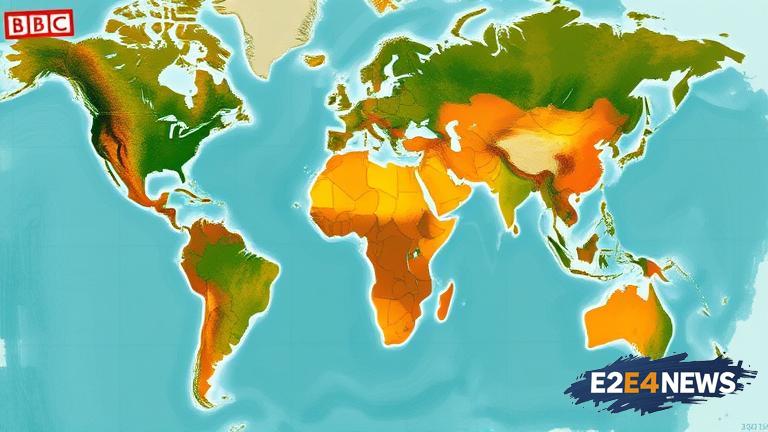The world is facing a growing crisis in terms of food security, with climate change being a major contributor. Rising temperatures, changing precipitation patterns, and increased frequency of extreme weather events are all taking a toll on global food systems. According to recent reports, the past decade has seen a significant increase in food insecurity, with millions of people around the world struggling to access nutritious food. The effects of climate change on food production are far-reaching, with crop yields declining, and livestock production being impacted. In addition, climate-related disasters such as droughts, floods, and heatwaves are becoming more frequent, leading to food shortages and price increases. The consequences of climate change on food systems are not limited to production, as transportation, storage, and distribution are also being affected. Furthermore, the impact of climate change on food security is not evenly distributed, with vulnerable populations such as the poor, children, and the elderly being disproportionately affected. The United Nations has warned that climate change could lead to a decline in global food production, with potentially catastrophic consequences. In response, governments, international organizations, and civil society are working together to develop and implement climate-resilient agricultural practices, improve early warning systems, and enhance emergency preparedness and response. However, more needs to be done to address the scale and complexity of the challenge. The international community must come together to support climate change mitigation and adaptation efforts, particularly in developing countries where the impacts are being felt most acutely. Moreover, there is a need for increased investment in climate-resilient agriculture, as well as initiatives to reduce food waste and improve food distribution. The private sector also has a critical role to play in supporting climate-resilient food systems, through investments in sustainable agriculture, climate-resilient infrastructure, and climate-informed decision-making. Ultimately, addressing the impacts of climate change on food systems will require a coordinated and sustained effort from all stakeholders, including governments, international organizations, civil society, and the private sector. The future of food security depends on our ability to work together to address this pressing global challenge. Climate change is a global problem that requires a global response, and it is imperative that we take action now to ensure a food-secure future for all. The clock is ticking, and the consequences of inaction will be severe. It is time for the international community to come together and take bold action to address the impacts of climate change on food systems.





